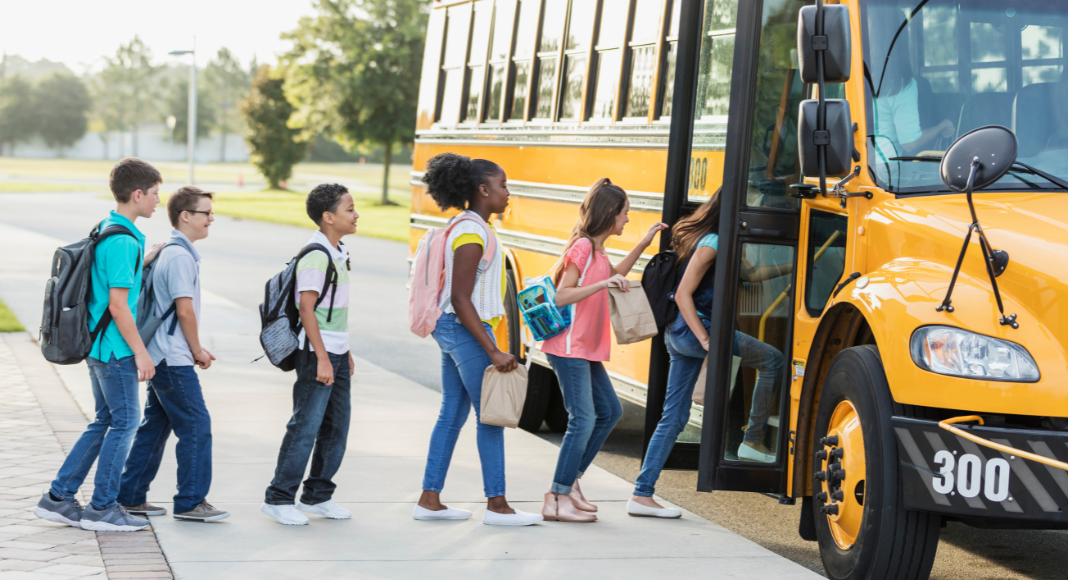 In a world with so much animosity and hatred, teaching our kids that a simple act of kindness can go a long way. Kids begin to socialize as early as preschool, and as they progress, their perspectives will most likely shift as well.
In a world with so much animosity and hatred, teaching our kids that a simple act of kindness can go a long way. Kids begin to socialize as early as preschool, and as they progress, their perspectives will most likely shift as well.
There is a lot of pressure socially as children all want to be liked and unconsciously seek approval from their peers. Nevertheless, it all boils down to acceptance. School can be tedious and confusing because popularity may seem like the most important thing in the world.
Unfortunately, the need to fit in can become the focal point of a child’s school career ranging from elementary to high school.
The term “be yourself” will most likely get lost in the turbulence of ensuring a spot at the “popular” table in the lunchroom. The amount of pressure this can put on kids is immeasurable. A simple seat can introduce a cycle of low self-esteem, confidence, and maybe even depression. Sadly, it’s all about status, and yes, this can occur as early as elementary school.
Kids, especially girls, are growing up way too fast nowadays. They may begin to show an interest in crop tops, long fake nails, and makeup and even develop a crush on a classmate! All of which can bring about jealousy and competition in friendships. Insecurity can rear its ugly head if they feel like their friends won’t want to hang out with them if they don’t share the same interest in clothing, hair, boys, etc.
From a parent’s point of view, this scenario can be described as a double-edged sword. On the one hand, we want our children to be well-liked and accepted by their peers because we don’t want them excluded or feel like they aren’t good enough. However, we don’t want them to succumb to social pressure and self-sabotage.
It may anger us to know that our kids are embracing hobbies, sports, and clothing trends that they would otherwise never be interested in if not for their friend group. However, these stigmas are similar to what some of us have gone through during our school years, so we empathize.
As we teach our children to be leaders and not follow the crowd, we may realize it is easier said than done.
What’s a parent to do? We undoubtedly want what’s best for our kids and expect them to make wise decisions and use their discernment regarding friends. I want my children to experience what life offers while staying true to the morals and lessons I have taught them. However, I have realized that no matter how hard I try to implement positivity, the negative may show up and bring many other undesirable traits.
By middle school, your kids may be part of the same social circle as in elementary school. This can be good or bad. Starting a new school with the same friends greatly relieves kids and their parents. Children can enter school with familiarity and comfort because they know people, which is half the battle. There are many opportunities to meet new friends too.
We can all recall when we were picked on at school, witnessed others being picked on, or were even the culprit. PE was dreaded by many, and most likely, this is still the case. No one ever wanted to be picked last because of the fear of embarrassment. Lunch was by far the worst time of day for some. Standing in a large room with tables occupied by groups of kids can overwhelm someone who isn’t sure where they belong or who they are. The school years are a time of self-discovery, and although some are welcoming and kind, you have those rotten apples who choose to exclude others and make them feel inadequate.
As a result, these kids have a tough time and are often considered the black sheep. They are often left out due to their clothing choices or interests. Instead of being embraced for their differences, they may be mistreated and shamed for them.
As parents, we are responsible for encouraging our children to appreciate the differences they see in others.
If they witness someone being left out at PE or excluded from a table at lunch, they should know that being compassionate or simply asking what their name is can make a huge difference in someone’s day. There is bravery in one acknowledging the child that everyone ignores when they pass them in the hallway or make fun of because they don’t have trendy clothes or the newest Jodans on their feet. Kids need to make mistakes to learn from them, but there is a difference between deliberately disrespecting someone and accidentally hurting someone’s feelings.
The effects of bullying can last a lifetime, and although it has become a cliché, putting yourself in someone else’s shoes is the best way to learn what empathy truly means. Sometimes kids need to learn first-hand how it feels to be rejected or shamed for a change to be made. No one is perfect, and there is no excuse to go out of one’s way to put down another.





















Heartfelt article. I was a “nerd” in school and experienced many instances the author shares. I often dreaded looking for a place to eat lunch if my one friend wasn’t there and I would have preferred to sit alone than go to PE/gym class for fear of striking out in softball. I didn’t want to wear my glasses so I couldn’t see the ball, but of course I didn’t tell anyone that. Thankfully I found peace in reading and it offered an escape to better places I could dream of going. My parents loved me, this I knew, and my mom gave me a lot of guidance to be kind and accepting of everyone. Thanks to the author for reminding us all how important it is to sit next to someone who is sitting alone.
Thank you Genevieve 💗💗
I appreciate you!
Comments are closed.